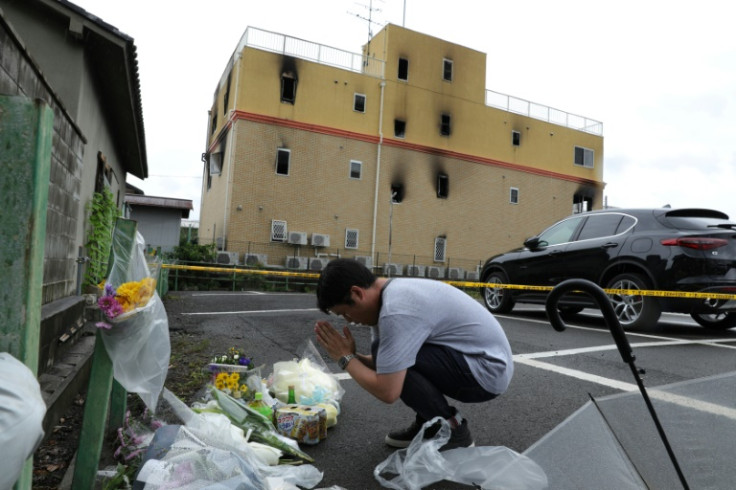
A Japanese man who admitted starting a fire that killed 36 people at an anime studio in 2019 faces a possible death sentence on Thursday when a court delivers its verdict.
The July 2019 arson attack at the studios of Kyoto Animation was Japan's deadliest crime in decades, and stunned the huge film and TV cartoon industry and its fans around the world.
Shinji Aoba faces five charges including murder, attempted murder and arson and prosecutors are seeking capital punishment.
Many of those killed in the blaze were young staff, including a 21-year-old woman. More than 30 others were injured.
Aoba has admitted he committed the attack, though his lawyers have entered a plea of not guilty due to mental illness.
"I didn't think so many people would die and now I think I went too far," Aoba told Kyoto District Court when the trial opened in September, media reports said at the time.
The accusations of breaking into the building, spreading gasoline around the ground floor and setting it alight before reportedly shouting "drop dead" are "correct", he said.
Firefighters called the incident "unprecedented" and said rescuing people and extinguishing the fire was "extremely difficult".
Aoba had a "delusion" that the studio known by its fans as KyoAni stole his ideas, prosecutors said, a claim the company has denied.
Aoba himself nearly died in the fire, suffering 90-percent burns and reportedly needing 12 operations.
He regained consciousness weeks later and was said to have sobbed with relief after undergoing a procedure that restored his ability to speak.
Japan is one of the few developed countries to retain the death penalty, which is carried out by hanging.
Despite international criticism, public support for capital punishment remains high.
No executions were carried out last year, with the last person put to death in 2022.
More than 100 people are on death row, local media say.
Last week a 21-year-old man was given a death sentence for killing the parents of a girl who he had a crush on and setting their home on fire, according to media reports.
Aoba's lawyers have entered a plea of not guilty, saying he "did not have the capacity to distinguish between good and bad and to stop committing the crime due to a mental disorder".
For families of the deceased, the pain of their loss remains excruciating.
"Please give me back my daughter," a mother who lost her 26-year-old daughter told the court in December, broadcaster NHK reported.
"I wish I could go back to that day and die with her, at least by her side," she said.







